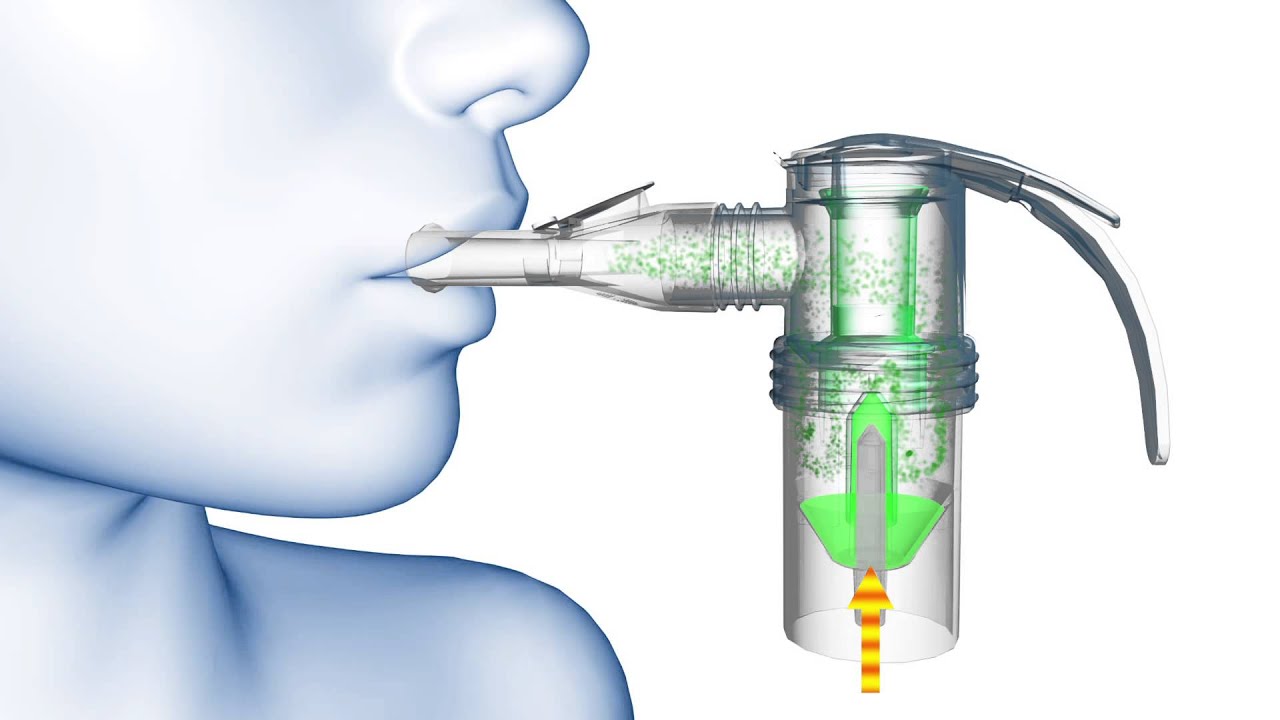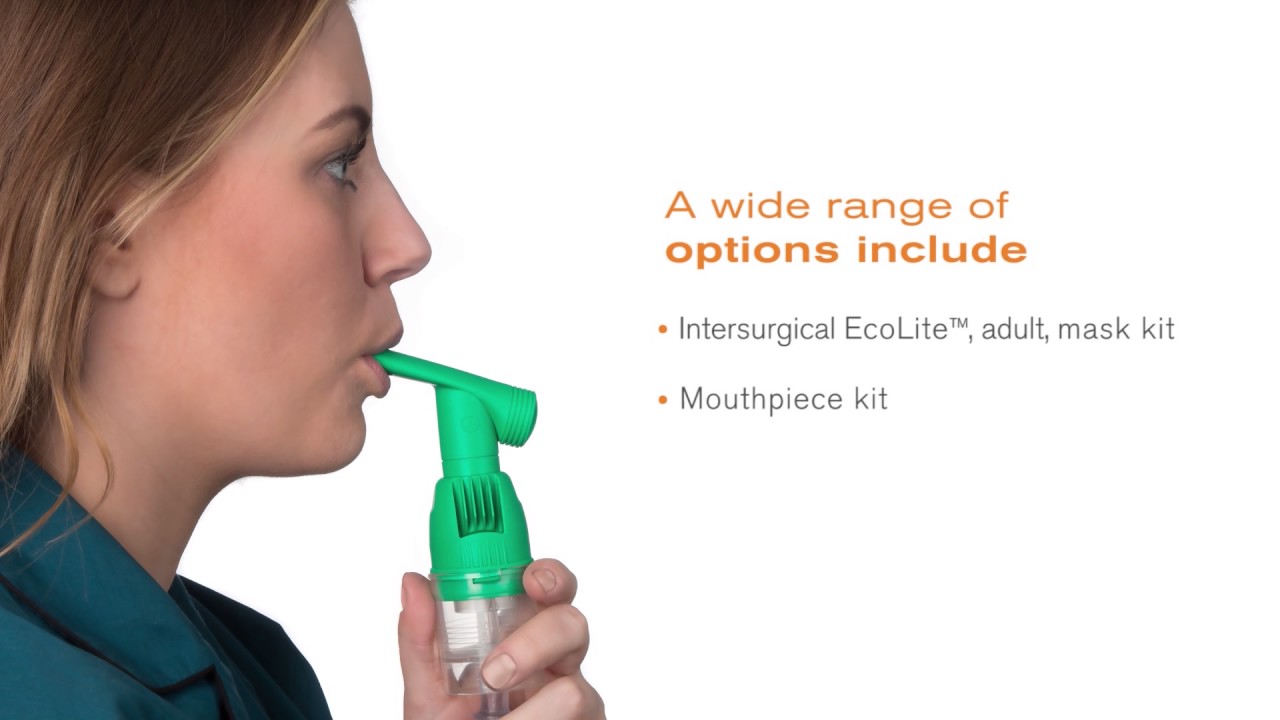Indications of aerosol therapy
The most common indication is the administration of bronchodilator drugs in patients with asthma and COPD. However, it is also used in the treatment of pathologies such as cystic fibrosis, HIV and bronchiectasis.
What substances can be administered?
With aerosol therapy, you can administer:
- Bronchodilator drugs or corticoids.
- Mucolytics that break the mucus in order to eliminate it better.
- Substances, such as saline, which make secretions more liquid.
- Antibiotics to treat the infection directly of the bronchi.
Discover: 4 basic steps to manage a COPD crisis
Advantages of aerosol therapy
The main advantage of aerosol therapy is that substances can be administered, or drugs, so that they come into direct contact with the affected areas of the respiratory tract. In this way, a quick effect is achieved with less dose.
Further, has fewer side effects than systemic administration, since the substance, or drug, is deposited directly at the bronchial level. Among the factors that determine the deposit of a nebulized substance in the respiratory tract, is the size of the particles.
However, depending on the type of nebulizer, there may be considerable differences in the size of the particles, the speed and the dispersion of the aerosol.
Regarding the factors that depend on the patient, they find each other:
What risks and complications can it have?
Between the complications that may arise they find each other:
- Bronchospasm: the bronchi become inflamed and narrow causing cough and shortness of breath.
- Infection for contamination of the device.
- Palpitations or rise in blood pressure.
- Retention of carbon dioxide, which is usually removed with expiration.
Read also: What to do in case of an emergency due to bronchial asthma crisis?
How is aerosol therapy administered?
Nebulizers must be used correctly, otherwise they are not effective. It is very important that the type of nebulizer is adequate for the substance or drug necessary to treat the disease.
The aerosols can be administered by face mask in patients who are very fatigued or respiratory difficulty. Also when there is an inability to use a conventional inhaler, such as the case of the elderly and seriously ill patients.
The medication must be prepared properly. In addition, you must have the necessary material and wash your hands well. For the correct application, follow the instructions on the device and use the exact doses of the drugs.
However, if the treatment includes several drugs or substances, one is taken after another in the following order:
- Bronchodilators and / or corticosteroids.
- Substances to fluidify the secretions.
- Respiratory physiotherapy: to mobilize and expel the secretions.
- Antibiotics: to treat infection in the bronchi.
It is advisable to do the treatment seated, with the back straight and the head back. In this way, we avoid that the aerosol affects unwanted areas. The equipment must be properly cleaned and disinfected after each use.
Types of nebulizers

- Ultrasonic: the aerosol is produced by vibrating a piezoelectric crystal. They are only suitable for fogging water and saline at different concentrations.
- Kind jet: they consist of a nebulization chamber in which an aerosol is generated by a gas flow. They are suitable for nebulizing bronchodilators, anti-inflammatories, saline at different concentrations, mucolytics and also antibiotics.
- Vibrating mesh nebulizers: the aerosol is generated when passing the liquid to be nebulized by the holes of a mesh. They serve to nebulize antibiotics, since they contribute a greater pulmonary deposit and a minor loss of the drug.
conclusion
To perform an effective treatment with aerosol therapy, you must follow the medical prescription. In case several drugs are necessary, you should take them one after the other.
You must be very careful with the cleaning and disinfection of the equipment. Likewise, it is equally important perform proper oral hygiene to eliminate medication residues from the buccal mucosa and the pharynx.
